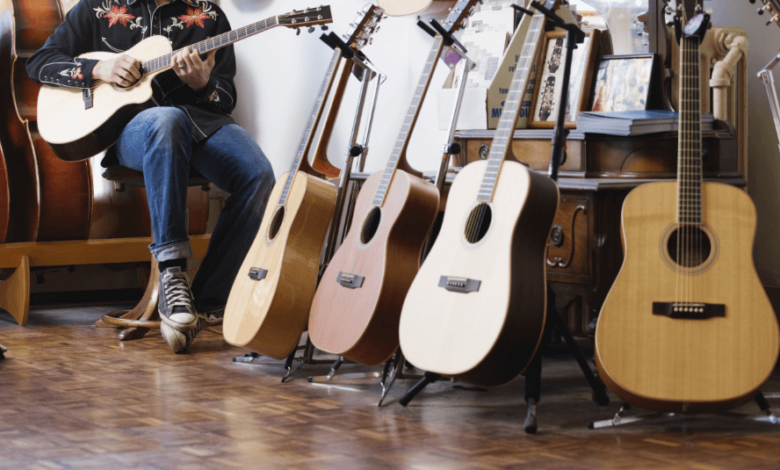Choosing the Right Instrument for Music Enthusiasts

Selecting the ideal musical instrument is essential for both beginners and advanced musicians. The piano is widely regarded as one of the most versatile instruments, suitable for solo performances, teaching, and composing. Making an informed decision requires understanding different types, features, and the needs of the player.
The Advantages of Owning a Quality Piano
Investing in a high-quality instrument offers several benefits:
- Superior Sound: Premium pianos produce clear, rich tones, enhancing both practice and performance.
- Durability: A well-constructed piano lasts decades with proper maintenance.
- Comfortable Playability: High-quality keys respond consistently, reducing strain for players.
- Value Retention: Certain pianos maintain or even increase their value over time.
When considering the best piano, these factors are crucial for maximizing satisfaction and performance quality.
Types of Pianos Available
Understanding the different best piano options helps in making the right choice:
- Acoustic Grand Pianos: Known for excellent sound quality and dynamic range, ideal for professional settings.
- Upright Pianos: Compact and cost-effective, suitable for home use and practice spaces.
- Digital Pianos: Offer versatility, headphone connectivity, and built-in features like recording and multiple voices.
- Hybrid Pianos: Combine traditional piano mechanisms with digital functionality for a modern experience.
Each type has unique advantages, and selecting the most appropriate model depends on space, budget, and intended use.
See also: Shaping the Future of Healthcare with India’s Leading Pharmacy Education
Features to Consider When Choosing a Piano
When purchasing the best piano, certain features should be prioritized:
- Key Action: Weighted keys simulate the feel of acoustic pianos, enhancing technique.
- Sound Quality: Check for resonance, tone consistency, and speaker quality in digital models.
- Connectivity: Options like USB, MIDI, and Bluetooth support learning apps and recording tools.
- Size and Design: Consider the physical space and aesthetic preferences for the room.
Evaluating these features ensures that the chosen instrument aligns with personal needs and expectations.
Benefits of Digital Integration
Modern pianos offer advanced functionalities that traditional instruments cannot provide:
- Learning Tools: Built-in lessons and interactive apps support skill development.
- Portability: Digital instruments are lightweight and easier to move than traditional pianos.
- Volume Control: Headphone options allow practice without disturbing others.
- Recording and Playback: Enables monitoring progress and experimenting with compositions.
These capabilities enhance the learning experience while maintaining the feel and sound quality of a conventional piano.
Tips for Beginners
New players should focus on foundational aspects to maximize their investment:
- Start with a Suitable Model: Choose a piano with responsive keys and simple features to avoid overwhelm.
- Set a Practice Routine: Consistent practice develops muscle memory and musical understanding.
- Invest in Lessons: Professional guidance ensures proper technique and faster progress.
- Explore Online Resources: Tutorials, forums, and virtual instructors can complement learning.
Focusing on these aspects helps beginners develop confidence and technical proficiency.
Advanced Considerations for Experienced Players
Experienced musicians may require more specialized instruments:
- Extended Range: Full-size keyboards or grand pianos provide more versatility.
- Custom Sound Profiles: High-end digital pianos allow users to modify timbre and effects.
- Professional Features: Advanced connectivity, weighted pedals, and touch sensitivity enhance performance.
- Maintenance and Tuning: Acoustic pianos need regular tuning, which affects long-term usability and sound quality.
Advanced players should select instruments that match their performance goals and musical style.
Maintaining Your Piano
Proper maintenance ensures longevity and consistent performance:
- Regular Tuning: Acoustic pianos require tuning 1–2 times per year.
- Cleaning: Dust and moisture can damage keys and internal mechanisms.
- Software Updates: Keep digital instruments updated to maintain functionality.
- Safe Storage: Avoid extreme temperatures and humidity for optimal performance.
These practices protect your investment and enhance the overall playing experience.
Making the Purchase
Purchasing the best piano requires careful planning:
- Research Brands: Established brands often provide reliable instruments with warranty support.
- Try Before Buying: Hands-on testing reveals key feel, tone, and playability.
- Compare Prices: Online and physical stores may offer different pricing and promotions.
- Check Reviews: Feedback from other buyers provides valuable insight into performance and reliability.
Thorough research ensures that the instrument meets expectations and supports long-term musical growth.
Conclusion
Choosing the right piano involves understanding types, features, and personal needs. A well-selected instrument enhances learning, performance, and enjoyment. Whether for a beginner starting their musical journey or an advanced player refining their craft, investing in the best piano ensures quality, durability, and an inspiring musical experience.




